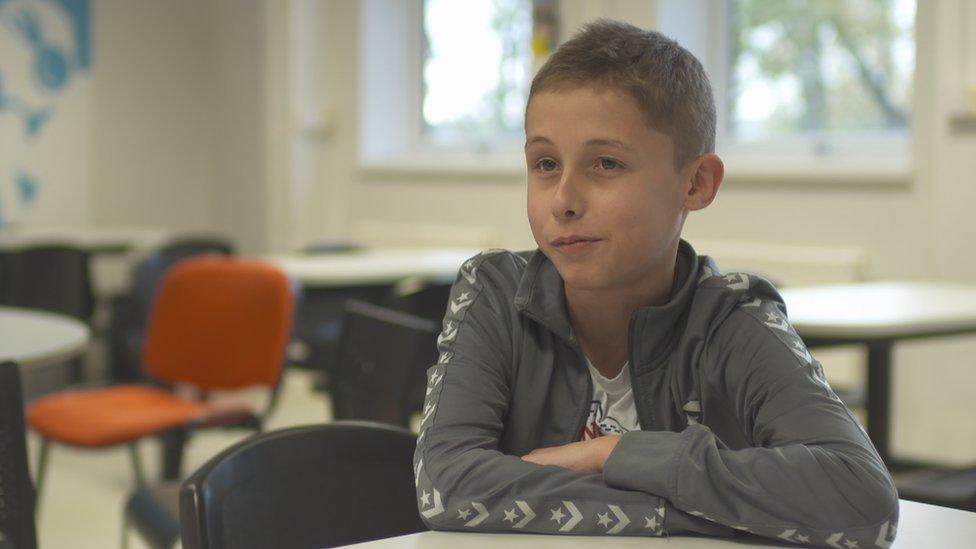Wellbeing: 'After a tumour, I was hit with anxiety'
- Published
Mary was struck down with a brain tumour aged 11
When 17-year-old Mary was struck with a brain tumour at the age of 11, it left her with ongoing health issues, including anxiety.
She struggled to cope in mainstream schools, and started at Ysgol y Deri special school in the Vale of Glamorgan a year ago.
All the staff there have helped manage her anxiety, and she has flourished.
The school has now been recognised by charity Trauma Informed Schools UK for its approach to teaching.
The charity describes a "trauma and mental health-informed school" as one that supports "children and teenagers who suffer with trauma or mental health problems and whose troubled behaviour acts as a barrier to learning".
Its training programmes for teaching staff were "born out of a response to major public health studies" on children who have suffered several painful life experiences.
When Mary was diagnosed with craniopharyngioma, a type of brain tumour, "it was a big shock", she said.
Although it was not cancerous, she needed surgery to release the pressure on her brain. A year later it had grown and she endured a 14-hour operation before leaving their home in Penarth to spend three months in Florida for proton beam therapy.
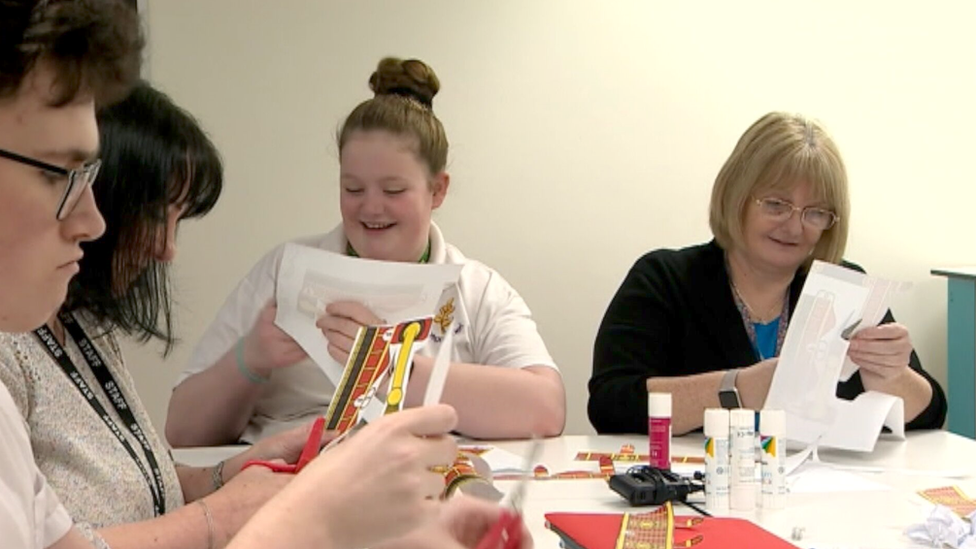
Mary's new school has also led to the "nicest friendship group I've ever had"
All in all Mary was not properly in school for three years, and by then her classmates had grown up and made new friends.
"I went to a few different schools, and I just didn't feel like I fitted in, with my condition. People were not really understanding the challenges that I face every day."
The tumour is now under control, but not all of it could be removed because of its position.
It means her body does not produce any hormones and she has to take substitutes. One of the effects of this is extreme fatigue, and she also has to cope with a short concentration span.
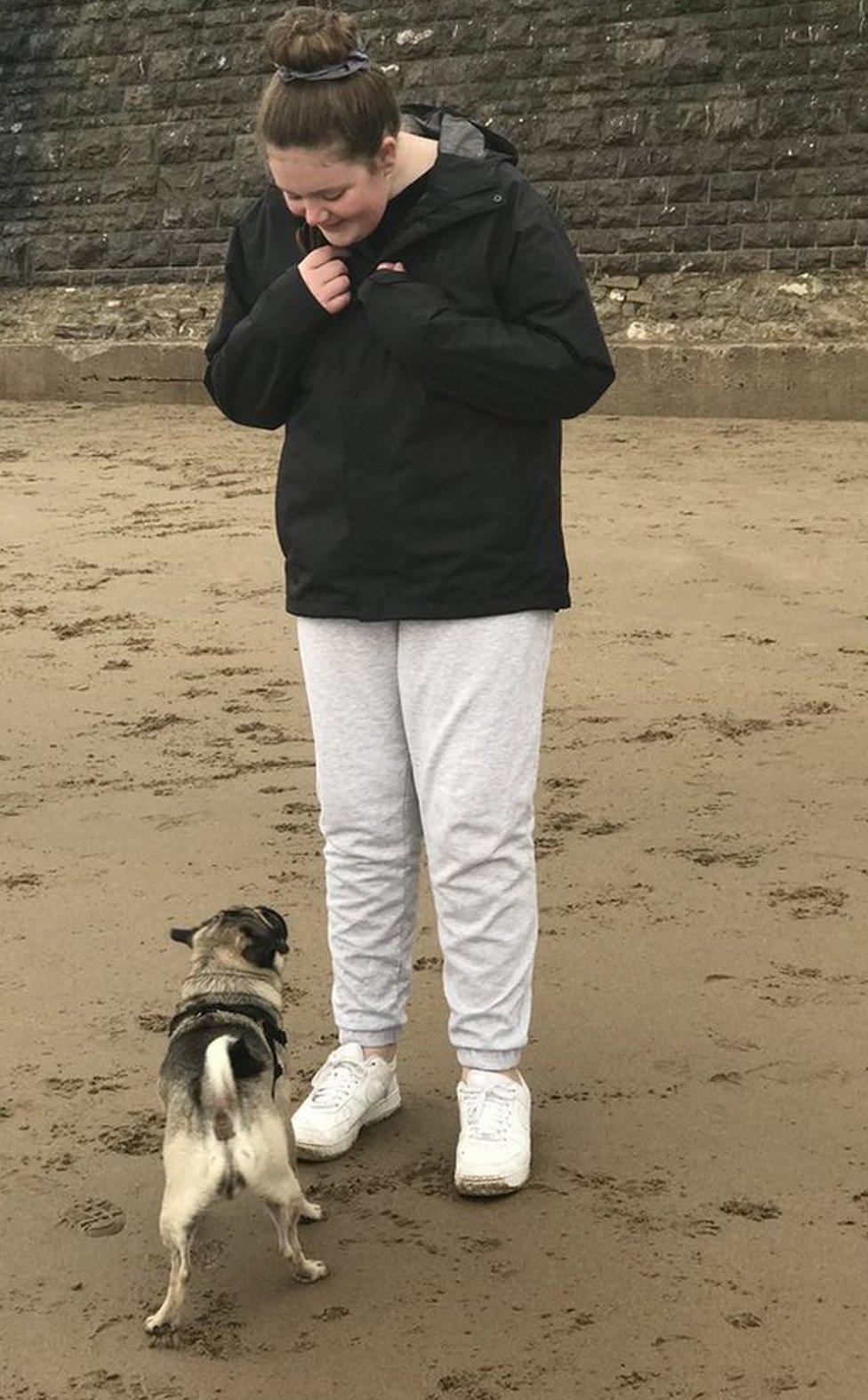
Mary gets anxious out and about, but the school has helped her with her confidence

The overall impact of her experience has left her with anxiety.
But at Mary's new school, which caters for children with a wide range of additional needs, "they treat you as yourself, not your condition", she said.
"If we go out I get very anxious. I get anxious about doing things but my [learning support assistant] is always there to comfort me and make me feel better."
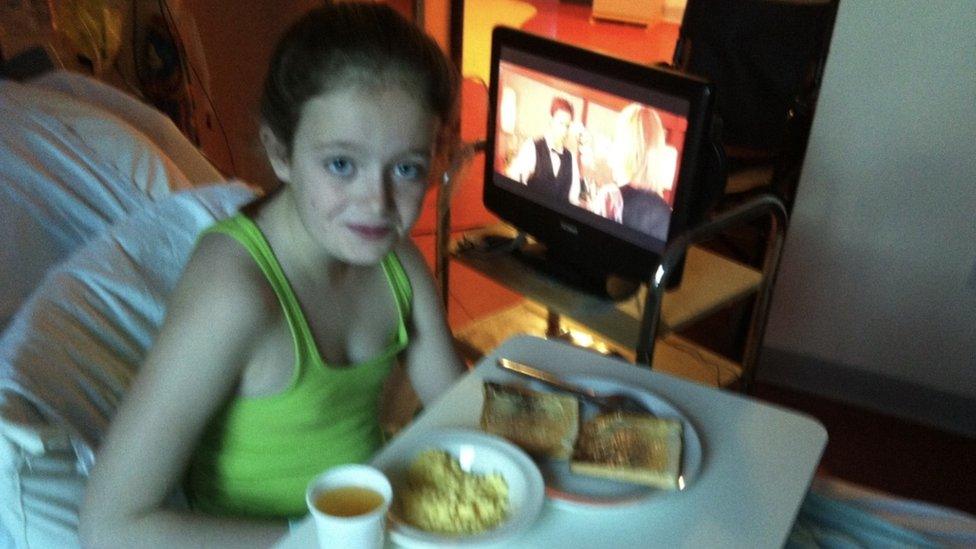
Mary pictured in hospital just after her brain tumour was diagnosed
"I used to hate maths, but since coming here it's one of my favourite subjects... If you get something wrong they don't make a massive thing, you just try again and you get it right, and that makes you feel more positive.
"When I was in the other school I used to doubt myself a lot...but now that I've come here everyone's really positive around me, and I'm getting positive thoughts."
Her return to confidence has helped her win the main part of Jasmine in the school production of Aladdin. "I've never had a part before and it makes me feel super-proud," she said.
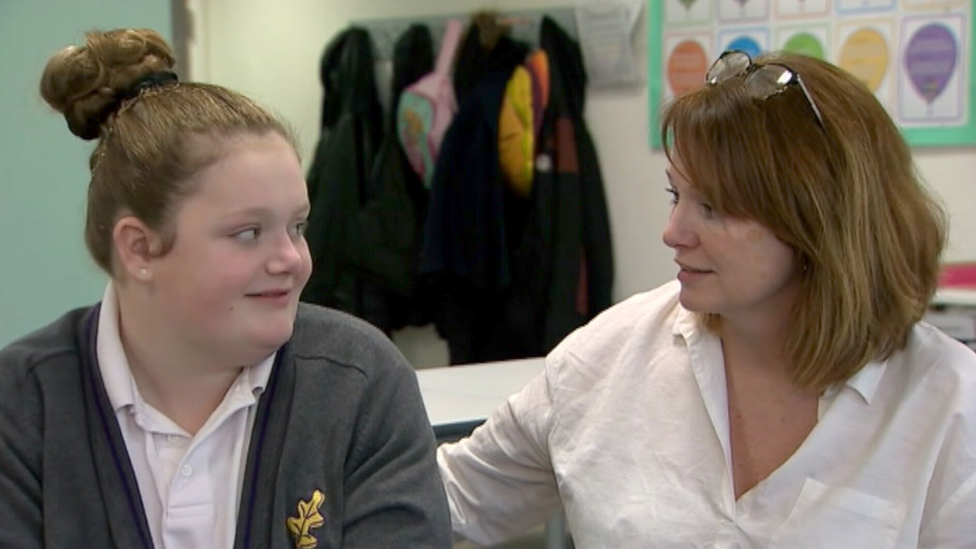
Now Mary has the right support at her special school, she is able to achieve in her school work, says her mother Hannah
Her mother Hannah Isherwood said now Mary has had the right support, she is able to achieve.
Everybody knows what she needs, down to the staff in the cafe, and the nurses, who support her with her medication in the middle of the day, she said.
"If the child isn't happy, then they can't learn."
'We can unpick some of the emotions and behaviours'
Josie McAllister, one of the deputy head teachers of the school, said they had always had a commitment to this kind of approach but in the last two years they had made sure "every single member of staff" had received training.
This covered different techniques on "how to work with young people, how to listen to young people, to build those trusting relationships, and also to look at how we can unpick some of the emotions and behaviours... and work with them to find better solutions".
"Some of our pupils have had a great deal of medical intervention, most have some form of communication difficulty, some experience very high levels of anxiety and some have had very negative experiences due to difficulties," she said.
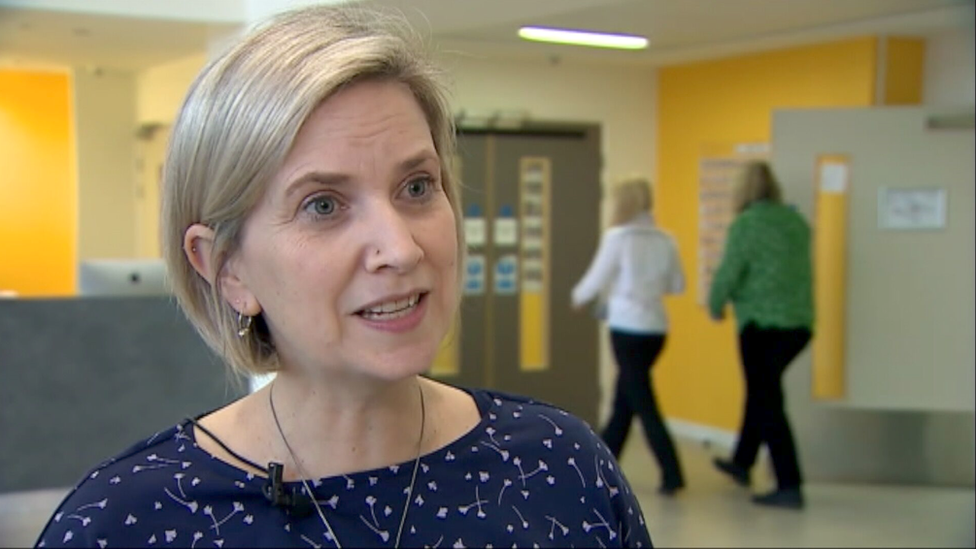
Deputy head teacher Josie McAllister said they have "clear expectations" of pupils, but do not use sanctions or isolation to deal with difficult behaviour
The training covered the science of how the brain responds under stress and the effects of trauma and other adverse childhood experiences, which can cause difficulties in managing emotions, concentration and building relationships.
While they have clear expectations of children, they do not use "traditional approaches" such as sanctions and isolation, she said.
"Our daily class-based activities ensure pupils feel welcome, start the day in a positive way, have fun and are calm and ready to learn, for example, physical activity, mindful colouring, yoga...
"Some of our pupils actually like to come into school and for it to be calmer and quieter... [but] if you come into one of the entrances, it's high fives down the corridor, and it's about everybody feeling really happy when they get here."
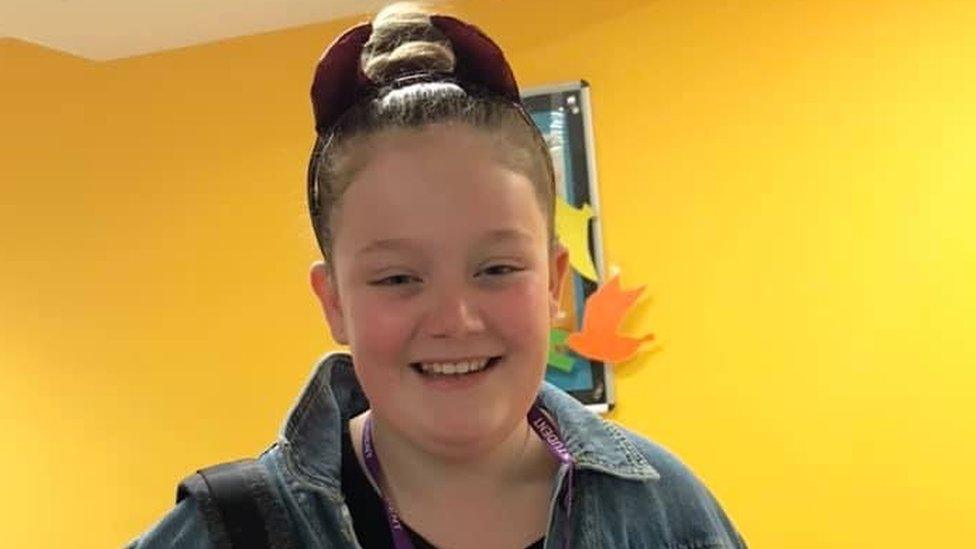
Teenager Mary lost three years of schooling because of her tumour, and credits her school's approach to mental health for her return to confidence
- Published10 February 2020
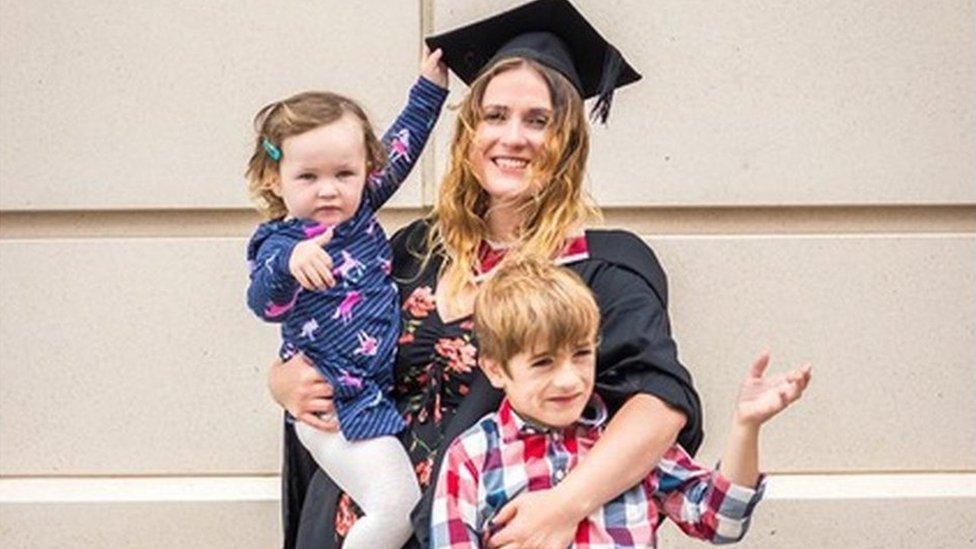
- Published11 February 2020
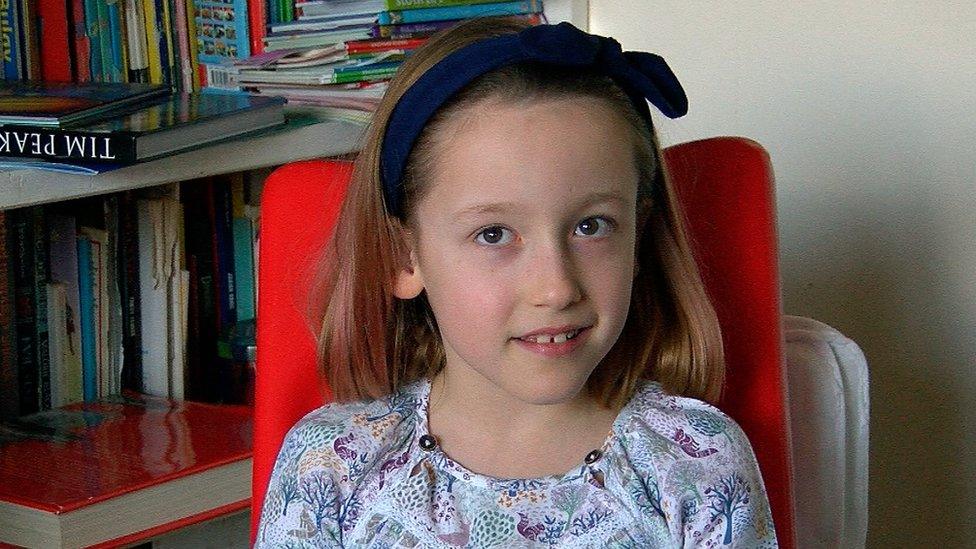
- Published5 February 2020
